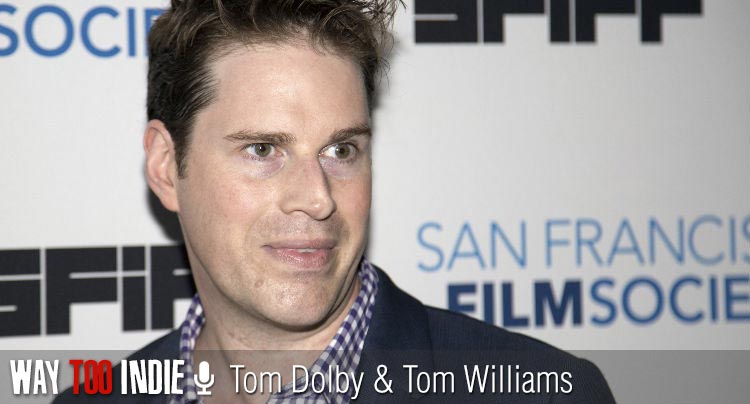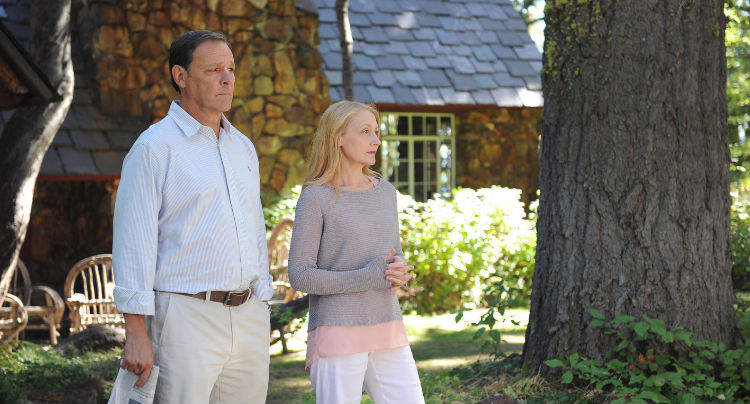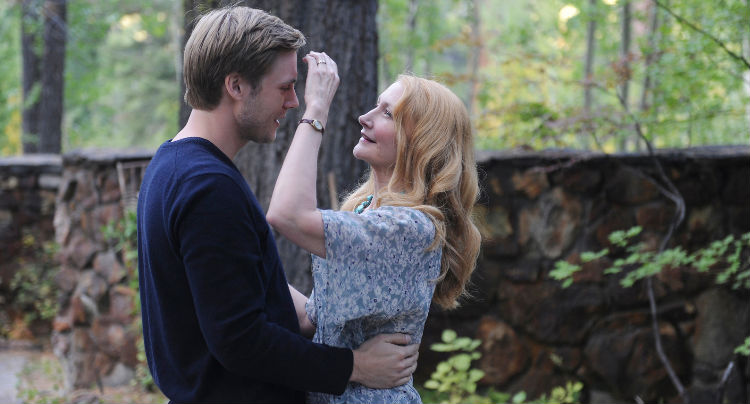Tom Dolby and Tom Williams On The Serendipitous Casting Process For ‘Last Weekend’

A handful of siblings and their significant others gather at their wealthy parents’ home in Lake Tahoe for a weekend of awkward arguments, divulged dark secrets, and a couple of near-death experiences in Last Weekend, the debut feature by co-directors Tom Dolby and Tom Williams. The film stars Patricia Clarkson and Chris Mulkey as the parents, with the rest of the ensemble filled out by young stars on the rise: Zachary Booth (Damages), Joseph Cross (Lincoln), Alexia Rasmussen (Proxy), and Fran Kranz (Cabin in the Woods).
We spoke with Dolby and Williams in a roundtable interview about the history behind the house they filmed in, the strange effect the isolation of Lake Tahoe has on relationships, the serendipitous nature of the casting process, the deep roots of their partnership, and more.

The place where you filmed is exquisite. It’s significant not only in cinema, but for you personally.
Dolby: My parents bought the house in 1979. And, as you know, it was in A Place in the Sun in 1959, which is part of the amazing history of the house. There was a lot of restoration they had to do to it. There was some awful 1970s “casino carpeting” [as my mom called it]. They tore it up and found these amazing hardwood floors underneath. They found some vintage photographs and were able to restore it to what it was in 1930.
You called the house a crucible for what’s happening inside. Was that true in your personal experience, and was that what you used to propel your characters forward?
Williams: I’d been to the house a couple times before filming because Tom and I have known each other for about 20 years. It’s interesting and unique because of how isolating it is up there. When you’re in Lake Tahoe, you’re an entire world away from anything else. There’s a strange feeling you get there. You’re at a high altitude, you’re in a place where they had to carve out civilization from this really rugged landscape. There’s a sense that you’re sealed off from civilization and all outside influence, which can have an interesting effect on characters who know each other too well and characters who don’t know each other very well. You put them in almost a petri dish and watch the relationships unfold.
Dolby: It’s the fish tank effect.
Williams: You can’t escape, and there’s something great about that from a storytelling perspective. There are the literal gates within the film, but even if you got outside the gates, you’re so far from everything else.
Dolby: That’s what we love about the weekend form; whether it’s in novels or short stories or novels or film, you have this very limited amount of time. You have these people that are thrown together and suddenly put into this very intimate circumstance. A lot of characters in the film don’t know each other, so it’s just sort of seeing what happens in this great social experiment. For me, personally, it’s always been a very relaxing place. I’ve never had that dramatic a weekend there, thankfully, but that’s where the fiction part comes in.

Patricia and Chris have incredible resumes and have been doing great work in film for years, but this young cast is really savvy. Anyone who pays attention to the indie film scene knows they’ve done great work there and that they’re on the brink of coming into their primes as actors. Talk about assembling the young cast members.
Williams: We had three weeks of casting in L.A. and New York. We worked with a wonderful casting director called Mary Vernieu. She gave us some interesting people; there were some people who we asked to meet and some who came out of the woodwork. There were some people where, we had already cast certain actors, but they’d tell us to look at other actors who they knew personally, and we ended up casting them, too. Tom and I knew the characters so well. He’d written the first draft of the script about two years before we started the casting process, so we’d been living with these people for a while and had a good idea of what we wanted. When the people that we casted walked into the room…
Dolby: We knew that they were right. And they came to us through this wonderful sense of serendipity. We had obviously settled on Patty, and that was all set. The script went out to managers, and people started coming to us. Joseph Cross was actually one of the first people we met with, and we we said, “Oh my god, he understands this character so much. He’s Roger.” And then we had to go meet with 20 other people. [laughs] Devon Graye’s acting teacher in San Francisco is a friend of mine, and he had been telling me about Devon for two years. I asked our casting director if we could meet with him, and the second he walked in the door it was that same thing. We had a great conversation, and he totally understood who the character was. He actually helped us find our Theo. He recommended Zachary Booth.
Williams: And by the way, we talked to him on a Saturday and he was in Lake Tahoe with us two days later. Casting turned out to be an easy process.
What was it like working on a first feature together?
Williams: We were in boarding school together, we were at college together, we shared an apartment in New York…One thing that’s interesting about collaborating with someone you know so well is that you’re not worried about offending them. You’ve had every argument you could ever have about anything, from “What are we going to do today?” to “Why did you buy cilantro?” We go way, way back. There’s an honesty required amongst collaborators like that to where you don’t have to worry that anything you say will offend their sensibility. Any process of filmmaking is a collaboration, so to have the ability to both argue out ideas and take in ideas and do it all from a safe place where your ego isn’t on the line is important.
